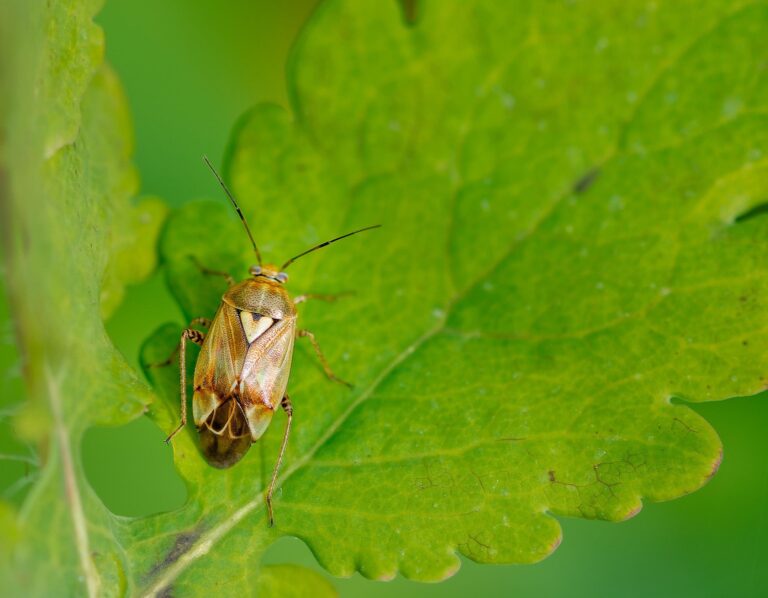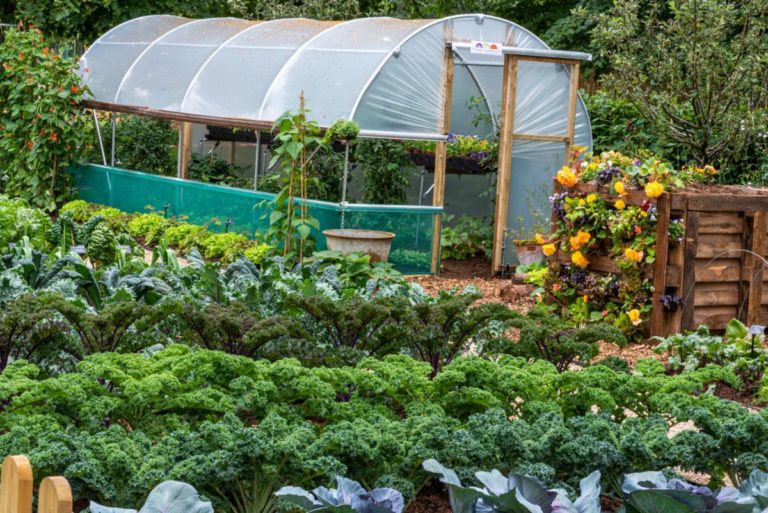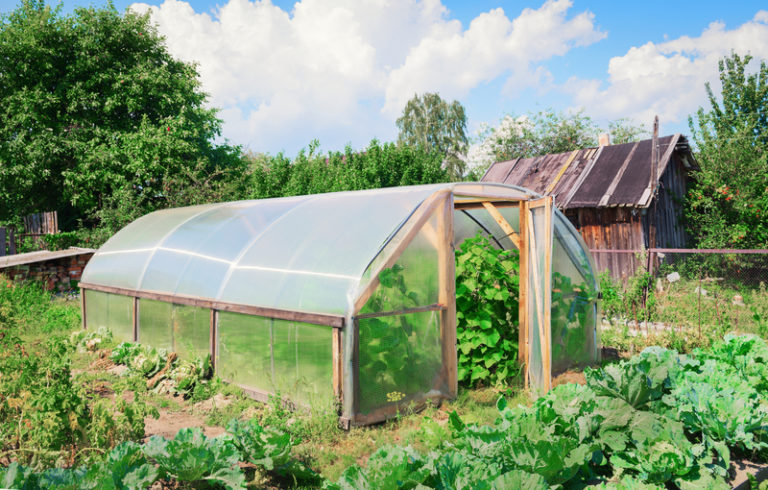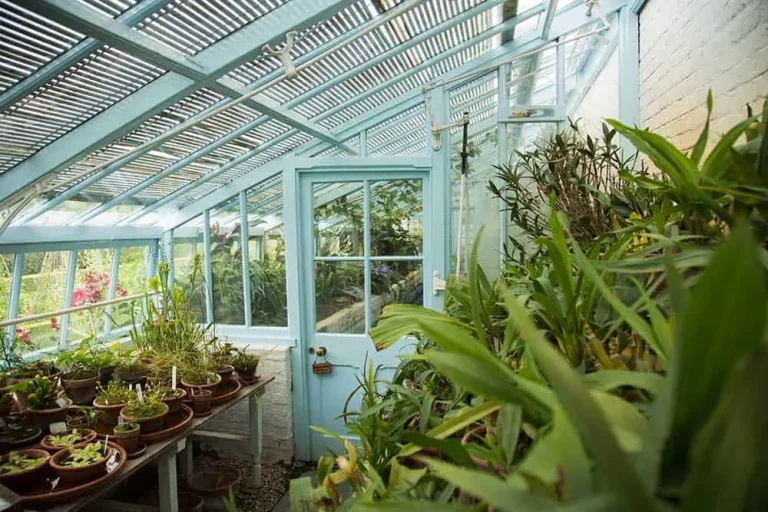Are you tired of using harsh chemical pesticides in your garden that can harm the environment and your health?
Look no further than making your own natural, non-toxic pesticide at home!
Not only is this method more eco-friendly and safer for your family and pets, but it’s also an affordable and effective way to keep pesky garden pests under control.
Use Neem Oil
Neem oil is derived from the seeds of the neem tree and is a natural insecticide that can be used to control a wide range of pests, including mosquitoes, ticks, and fleas.
This oil is rich in azadirachtin, a compound that is toxic to insects but safe for humans and pets.
When applied to your yard or home, neem oil can effectively repel or kill these pests, preventing them from causing further damage or spreading diseases.
To use neem oil, simply mix it with water and spray it on your plants, lawn, or surfaces where pests are present.
You can also add it to your soap or detergent for an extra layer of insect protection.
Remember to reapply neem oil periodically to maintain its effectiveness.
With its long-lasting results and non-toxic properties, neem oil is an excellent alternative to chemical insecticides and can provide you with a safer and more sustainable way to protect your home and family.
Make a Garlic Spray
Garlic has natural insect-repelling properties, so you can make a garlic spray by blending garlic cloves with water and letting it sit for a few hours before straining and spraying on your plants.
To make a garlic spray, start by blending 3-4 garlic cloves with 1 cup of water in a blender or food processor.
This will create a garlic-infused water solution.
Then, let the mixture sit for a few hours or overnight to allow the garlic’s natural insect-repelling properties to fully absorb into the solution.
After the designated time, strain the solution through a cheesecloth or a fine-mesh sieve to remove any remaining garlic pieces and impurities.
Discard the garlic pieces and reserve the garlic-infused water solution.
This solution can be sprayed on your plants as needed to repel insects.
It’s important to note that the garlic-infused water solution will have a strong garlic smell, so be sure to test it on a small, inconspicuous area of your plant first to ensure that it doesn’t cause any damage.
You can adjust the amount of garlic and water to your liking, depending on the severity of the insect infestation and the size of your plants.
With regular spraying, you can effectively repel insects and keep your plants healthy and thriving.
Use Soap Solution
A mild dish soap can be used to control pests like aphids, whiteflies, and mealybugs. Mix the soap with water and spray it on the affected areas.
To control pests like aphids, whiteflies, and mealybugs, you can use a mild dish soap solution.
Mix one tablespoon of dish soap with one quart of water, and spray the solution on the affected areas.
The soap solution will break down the waxy coating on the pests’ exoskeletons, causing them to dehydrate and eventually die.
This method is effective for controlling aphids, whiteflies, and mealybugs, which can be particularly troublesome for gardeners.
To ensure the best results, spray the solution on the pests in the early morning or late evening when the insects are most active.
Be sure to test the solution on a small, inconspicuous area first to ensure it doesn’t damage your plants.
With proper care and attention, you can effectively use soap solution to control these pests and keep your garden healthy and thriving.
Make a Pyrethrin Spray
Pyrethrin is a natural insecticide that can be derived from the flowers of certain plants. You can make a pyrethrin spray by mixing pyrethrin powder with water and spraying it on your plants.
To make a pyrethrin spray, you’ll need pyrethrin powder, water, and a spray bottle.
Start by mixing 1-2 tablespoons of pyrethrin powder with 1 quart of water in a clean, sterilized spray bottle.
Use a clean dropper to mix the powder and water thoroughly.
Shake the bottle well to ensure the pyrethrin is fully dissolved in the water.
Before spraying, make sure to read the instructions on the pyrethrin powder label to determine the recommended concentration and application rate for your specific plants.
Spray the pyrethrin solution liberally on the leaves and stems of your plants, making sure to cover all surfaces evenly.
Be sure to repeat the treatment every 7-10 days as needed to maintain effective control of pests.
When using pyrethrin spray, it’s important to avoid applying it near open flames or sparks, as it can ignite easily.
It’s recommended to test a small area of your plant first before applying the spray to the entire plant to ensure no adverse effects.
With these simple steps, you can easily make a pyrethrin spray at home and enjoy effective pest control for your plants.
Use Diatomaceous Earth
Diatomaceous earth is a natural substance that is made up of fossilized algae. It works by dehydrating insects and their eggs, causing them to die. Sprinkle it around the base of your plants to keep pests away.
Diatomaceous earth (DE) is a highly effective, natural pest control solution that is made up of fossilized algae.
This substance is remarkable for its ability to dehydrate and kill off insects and their eggs, causing them to perish quickly and effectively.
To use DE, simply sprinkle it around the base of your plants, making sure to cover all areas where pests are likely to be found.
This will create a barrier that will deter pests from approaching your plants, thereby keeping them safe and healthy.
When applied regularly, DE can provide long-lasting protection against a wide range of pests, including slugs, snails, caterpillars, and more.
Plus, because DE is non-toxic and biodegradable, it is safe to use around children and pets, making it a great choice for environmentally conscious gardeners.
Try Cayenne Pepper
Cayenne pepper is a natural deterrent for pests like aphids and spider mites. Sprinkle it around the base of your plants to keep them away.
Cayenne pepper is a powerful natural deterrent for pests like aphids and spider mites that can cause significant damage to your plants.
By sprinkling it around the base of your plants, you can effectively keep these pests away and protect your garden from their harmful effects.
The active ingredient in cayenne pepper, capsaicin, is a potent irritant that can repel or even kill these pests, making it an excellent addition to your pest control arsenal.
To use cayenne pepper as a deterrent, simply sprinkle it liberally around the base of your plants, making sure to cover all areas where pests may be attracted.
This can include the soil, stems, and leaves.
You can also mix cayenne pepper with water to create a spray solution that can be applied directly to the plants to provide additional protection.
With its proven effectiveness and non-toxic nature, cayenne pepper is a versatile and safe solution for keeping your garden healthy and pest-free.
Make a Comfrey Spray
Comfrey is a natural plant that has insect-repelling properties. You can make a comfrey spray by blending comfrey leaves with water and spraying it on your plants.
To create a comfrey spray, simply blend comfrey leaves with water in a blender or food processor.
The ratio of comfrey leaves to water is up to you, but a general guideline is to use about 1 part comfrey leaves to 3 parts water.
This will create a concentration of comfrey extract that is strong enough to effectively repel insects, but not so strong that it burns your plants.
Once you have blended the comfrey leaves with water, strain the mixture through a cheesecloth or a fine-mesh sieve to remove any large chunks of plant material.
Then, transfer the liquid to a spray bottle and spray it on your plants as needed.
This spray can be used on both indoor and outdoor plants, and it is particularly effective against pests like whiteflies, spider mites, and aphids.
Comfrey spray is safe to use on food crops, so you can use it on your herbs, vegetables, and fruits to keep them pest-free.
So go ahead, give this easy and effective solution a try, and enjoy a healthy and thriving garden, completely pest-free!
Use Sesame Oil
Sesame oil has natural insect-repelling properties, so you can use it to keep pests away from your off-grid garden plants. Mix it with water and spray it on your plants.>8 points on How to Make a Natural, Non-Toxic Pesticide for Your Off-Grid Garden
Sesame oil is a powerful natural pesticide that can help keep pests away from your off-grid garden plants.
It contains natural insect-repelling properties that can effectively ward off harmful insects without using harsh chemicals.
To use sesame oil as a pesticide, simply mix it with water in a 1:1 ratio, and then spray it on your plants.
This solution can be sprayed on both the leaves and the soil around your plants to create a barrier against pests.
The sesame oil will not only repel pests but also provide nutrients to your plants, promoting healthy growth and development.
Sesame oil is non-toxic to humans, pets, and beneficial insects, making it a safe and eco-friendly option for your off-grid garden.
By incorporating sesame oil into your pest management strategy, you can protect your plants from harmful pests while also promoting a healthy and thriving garden ecosystem.
Make a Garlic Spray
Garlic has natural insect-repelling properties, so you can make a spray by blending garlic cloves with water and spraying it on your plants.
To make a garlic spray, start by blending three cloves of garlic with 1 cup of water in a blender or food processor.
This will create a garlic-infused solution that can be sprayed on your plants to repel insects.
You can use a plain glass spray bottle with a fine-mist nozzle to store and apply the spray.
Before spraying, make sure to shake the bottle well to mix the garlic solution with the water.
When spraying your plants, be sure to aim for the undersides of leaves and the soil around the base of the plants, as these areas are more likely to be infested with insects.
To maximize the effectiveness of the garlic spray, it’s best to use it in the morning or late evening when insects are most active.
By spraying your plants with this garlic solution, you can naturally repel pests and protect your plants from harm.
Plus, the garlic smell will help deter other pests from approaching your plants in the first place!
Use Soap Solution
A mild dish soap solution can be used to keep pests away from your off-grid garden plants. Mix the soap with water and spray it on your plants.
To keep pests at bay in your off-grid garden, consider using a mild dish soap solution.
This is a simple and effective way to repel pests without resorting to harsh chemicals.
To prepare the solution, mix a small amount of mild dish soap with water in a spray bottle.
Shake the bottle well to emulsify the soap and water.
Then, spray the solution evenly onto the leaves and stems of your plants.
This will create a barrier on the surface of your plants that pests will find unappealing and avoid.
This solution can be used on a variety of plant species, including fruits, vegetables, and herbs.
Just be sure to test a small area of your plants first to ensure they are not sensitive to soap solutions.
With regular spraying, you can keep your off-grid garden pest-free and healthy, all while minimizing your environmental impact.
Try Neem Oil
Neem oil is a natural pesticide that is derived from the seeds of the neem tree. It works by dehydrating and repelling insects. Mix it with water and spray it on your plants.
If you’re looking for a natural and effective pesticide to keep your plants healthy and pest-free, consider trying neem oil.
Neem oil is derived from the seeds of the neem tree and has been used for centuries in traditional medicine and agriculture.
It works by dehydrating and repelling insects, effectively eliminating pests without harming your plants or the environment.
To use neem oil, simply mix it with water and spray it on your plants, making sure to cover all surfaces thoroughly.
This will help to repel and kill any pests that may be present, such as aphids, whiteflies, and spider mites.
Neem oil can also be used as a fungicide to treat fungal infections on your plants.
With its potent insecticidal properties and its gentle, non-toxic formula, neem oil is an excellent choice for gardeners looking to go green and keep their plants healthy.
Use Cottonseed Oil
Cottonseed oil has natural insect-repelling properties, so you can use it to keep pests away from your off-grid garden plants. Mix it with water and spray it on your plants.
Cottonseed oil is a natural and effective way to repel pests from your off-grid garden plants.
The oil has insect-repelling properties that can help keep pests such as aphids, whiteflies, and spider mites at bay.
To use cottonseed oil as a pesticide, simply mix it with water in a spray bottle and apply it to your plants.
The cottonseed oil will disrupt the pests’ respiratory systems and cause them to vacate the area.
This method is particularly effective for controlling soft-bodied insects like aphids and whiteflies.
The cottonseed oil can also help to suffocate and kill any eggs that the pests may have laid on your plants.
By spraying cottonseed oil on your off-grid garden plants, you can enjoy a healthy and pest-free harvest without the use of harmful chemicals.
Make a Onion Spray
Onions have natural insect-repelling properties, so you can make a spray by blending onion slips with water and spraying it on your plants.
To make an onion spray, simply blend onion slips with water in a blender or food processor until the mixture is smooth and free of chunks.
Strain the mixture through a cheesecloth or a fine-mesh sieve to remove any remaining solids.
The resulting liquid can be sprayed directly on your plants, providing them with a natural insect-repelling barrier.
Onions contain sulfur compounds, which have been shown to repel insects and other pests.
When sprayed on your plants, these compounds will help deter pests and prevent infestations, keeping your plants healthy and thriving.
The acidic nature of onions can help to reduce the soil’s pH level, which can be beneficial for certain plants that prefer acidic soil.
With its natural insect-repelling properties and acidic effects, onion spray is an excellent, chemical-free alternative to traditional pest control methods.
Use Cayenne Pepper
Cayenne pepper is a natural deterrent for pests, so you can sprinkle it on your plants to keep pests away.
Cayenne pepper is a powerful natural deterrent for pests, making it an excellent addition to your gardening arsenal.
The capsaicin present in cayenne pepper irritates the skin and respiratory systems of pests, causing them to avoid your plants.
Simply sprinkle cayenne pepper powder or grated cayenne pepper around the base of your plants to keep pests at bay.
This method is especially effective against aphids, spider mites, and whiteflies.
For best results, reapply cayenne pepper every few days, as the effectiveness decreases over time.
Be mindful of the concentration of cayenne pepper you use, as too much can cause damage to your plants.
Start with a small amount and gradually increase as needed.
By incorporating cayenne pepper into your pest control routine, you can naturally repel pests and maintain a healthy, thriving garden.
Use Diatomaceous Earth
Diatomaceous earth is a natural substance that works by dehydrating and suffocating insects. Sprinkle it on your plants to keep pests away.
Diatomaceous earth (DE) is an excellent natural pest control solution that works by dehydrating and suffocating insects.
DE is made up of the fossilized remains of tiny aquatic organisms called diatoms, which are crushed into a fine powder and used as a natural pesticide.
When sprinkled on your plants, DE acts as a physical barrier that prevents insects from reaching your crops.
As insects come into contact with the powder, it absorbs their body fluids, causing them to dehydrate and eventually die.
Moreover, the powder can also affect the insects’ respiratory systems, causing them to suffocate.
DE is safe to use on both indoor and outdoor plants, and it is effective against a wide range of pests, including ants, bed bugs, cockroaches, fleas, and slugs.
DE can also be used as a natural fertilizer, as it contains trace minerals that can benefit plant growth.
So, if you’re looking for a non-toxic and environmentally friendly solution to keep pests away from your plants, consider using diatomaceous earth.
Use Predator Insects
You can use predator insects, such as ladybugs or lacewings, to control pests in your off-grid garden. These insects will eat the pests that are harming your plants.
To maintain a thriving and healthy off-grid garden, consider using predator insects as a natural solution to pest control.
Ladybugs and lacewings are excellent examples of predator insects that can be introduced into your garden to feed on pests.
These beneficial insects are voracious predators that will feed on aphids, whiteflies, spider mites, and other common garden pests.
By introducing these predator insects into your garden, you can effectively control pest populations while minimizing the use of chemical pesticides.
Ladybugs, in particular, are known to be fierce predators of aphids, and a single ladybug can consume thousands of aphids in a single day.
Lacewings, on the other hand, are skilled at hunting and devouring various types of pests, including mosquitoes and flies.
By releasing these predator insects in your garden, you can enjoy a more sustainable and chemical-free approach to pest control.
Want More? Dive Deeper Here!
Hey there! If you’re the type who loves going down the rabbit hole of information (like we do), you’re in the right spot. We’ve pulled together some cool reads and resources that dive a bit deeper into the stuff we chat about on our site. Whether you’re just killing time or super into the topic, these picks might just be what you’re looking for. Happy reading!
- Pest Management for Herb Bedding Plants Grown in the Greenhouse | Integrated Pest Management
- Bulletin #2761, Container Gardening Series: Gardening in Small Spaces – Cooperative Extension Publications – University of Maine Cooperative Extension
- Codling Moth / Walnut / Agriculture: Pest Management Guidelines / UC Statewide IPM Program (UC IPM)






